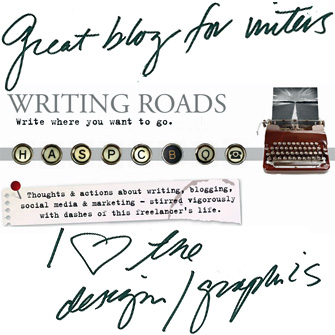On January 21-23 I attended the 2011 Writer’s Digest Conference. I arrived focused on my book, my book pitch and my publishing goals. I left focused on new friends and acquaintances, a community of writers and publishing industry professionals who shared their visions, ambitions, guidance and encouragement. Listen to my wide wandering reflection on this transformation or read audio transcription.
I’ve collected the social media artifacts from those three days into an illuminating if cumbersome archive of the event:
I’ll continue to curate and weave my commentary into this collaborative coverage in the days ahead. Please contact me (@virtualDavis) to recommend blog posts, etc. that I’ve overlooked. Thanks!
The highlight of the Writer’s Digest Conference was the people. I’m referring to both the presenters and the other attendees. As a writer, I find that it’s all too easy to disconnect — to become isolated — not socially but professionally. And yet, I love to connect and interact. I yearn for feedback and criticism and guidance and encouragement. This is a big reason why I teach, act, blog, flinflan, tweet and tell stories. Writing demands connecting and community. Last weekend’s conference delivered both, engaging me directly with writers, readers, publishing veterans and innovators.
In addition to the curated archives above, I’ll blog on several of the most memorable presentations over the next week or two. I’d like to start today by acknowledging one presenter who profoundly impacted me, Jane Friedman (@janefriedman) This woman’s a dynamo! Behind those coquettish ringlets and a smile that feels like a bear hug from an old friend, Jane Friedman is all genius. No joke. And not only publishing-smart, but savvy-smart. And generous-smart.
You see, I was Friedman’s student even before attending her “Your Publishing Options” session on Saturday morning. She didn’t know it; she didn’t even know me. But her No Rules blog has been a critical component of my crowdsourced MFA in recent months. Then, a little over a week ago, I attended her “3 Secrets for Selling Your Nonfiction Book Live Webinar“. Ninety minutes of real-time Friedman instructing me how to compose an effective book query. Great class!
She answered questions and disected queries submitted by participants in the webinar. My learning curve went vertical. But the most helpful was yet to come. I’d mentioned to Friedman that I’d be pitching my book at #wdc11, so she revised my bloated book overview into an amuse-bouche to tempt literary agents during the Pitch Slam. And she did so almost immediately despite the fact that she was preparing for her battery of presentations and traveling halfway across the country. She communicated and encouraged me via three separate social media channels. All, without having ever met me!
In short, Friedman had won my gratitude and admiration even before her Saturday morning presentation on traditional publishing, niche presses and self-publishing. Then she proceeded to deliver what was easily the most organized, efficiently delivered and content-rich presentation that I attended all weekend. She observed that all three publishing options are relevant today (“they’re almost all on equal footings now”) and mapped out the pros and cons for each. She instructed us to evaluate how we connect with readers in order to select the publishing channel most compatible with our own strengths. Although the self-publishing route demands the greatest entrepreneurial spirit, Friedman emphasized that all three require writers to actively market and promote their work. Nobody is exempt.
Friedman illuminated the dark nooks and crannies of today’s publishing world while empowering a capacity audience of aspiring writers to chart their own course. She acknowledged that it helps to have a “partner” or mentor in the publishing community, and I realized why she’d already had such a profound impact on me. Her blog and webinar are the closest I’ve come to having a writing mentor since college, half a lifetime ago!
I’ve written since high school; I’ve taught writing; I’ve edited and published online and offline journals; and I’ve even mentored others. But I’ve never sought out an experienced, confident coach to help me become a published author. Why not?
I suppose, like many writers, I’ve identified the writing practice with solitude, with head down focus and perseverance, with forging my own course. I suppose, like many writers, I’ve been stubborn and overconfident that I can (must?) navigate this adventure independently.
But Jane Friedman and Dan Blank and Richard Nash and Patricia V. Davisand Al Katkowsky and a half dozen literary agents and several dozen writers grabbed me, jerked my blinders off and showed me that I’m not alone on this journey. We’re a community full of wise mentors and inspiring mavericks. Writers who opt out of this community are sacrificing the very guides, resources, and opportunities which can accelerate their progress as writers. And they are overlooking the friendship and encouragement of the most compatible colleagues out there!
And so, I return to the Adirondacks, to my desk, to my manuscript. But unlike my writing practice before the Writer’s Digest Conference, I have discovered a new passion, focus, strategy and community. I am now ready to seek out the mentors and mavericks who will shape my adventure. I’m ready to embrace my fellow adventurers, starting with a warm “Thank you!” to everyone I met at the Writer’s Digest Conference and to those of you who followed along via #wdc11. And I am ready and eager to bear hug all of you who follow, support, critique, encourage and teach me via Twitter, Facebook, the virtualDavis blog and my Flinflanerie newsletter. Thank you!
Like this:
Like Loading...









